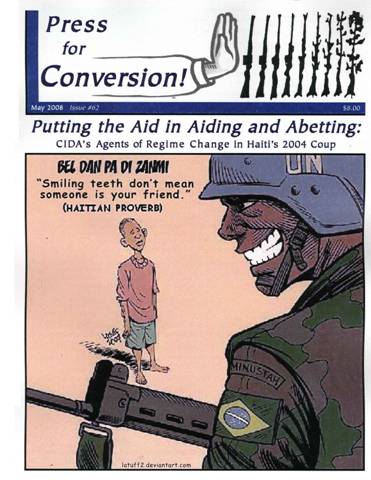Aug 15
20120
The International Campaign to Destabilize Bolivia, The International Campaign to Destabilize Venezuela, The Occupation of Haiti, USAID
WATCH | Will Progressive Latin America Oust USAID?
Aug 14, 2012
Lizzie Phelan reporting for Press TV in Managua, Nicaragua







 Elianette Derilus tucks her prematurely born new baby daughter in the top of her dress in the maternity wing on January 04, 2012 in Port-Au-Prince, Haiti
Elianette Derilus tucks her prematurely born new baby daughter in the top of her dress in the maternity wing on January 04, 2012 in Port-Au-Prince, Haiti

